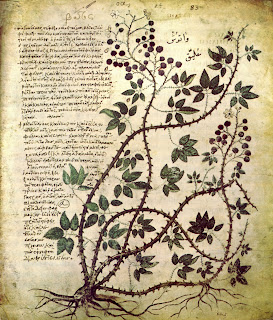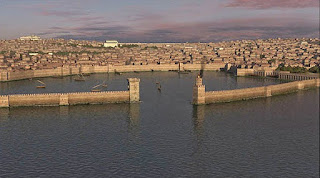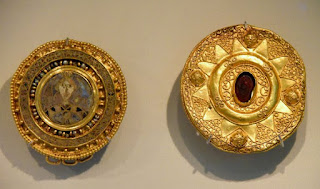Byzantine texts and editions
Byzantine editions and interpretations
University of Cyprus
//
//
The purpose of a modern critical edition is to reconstruct the original text as written by its author. But should that be its only aim?
Arguably, it involves tracing the composition technique employed by the author, or the text's later adaptations in another register (metaphrases) or even possible translations into another language. Thus the modern editor's aim is, on the one hand, to present its history and on the other, to offer a modern, reader-friendly, text edition.
In this workshop, the discussion will focus on the following subjects:
• Types of sources and supplementary materials: fontes and similia, along with imitationes and testimonia, which are essential for the constitutio textus as well as for a better appreciation for the text, in particular its composition technique and literary impact.
• The possibility or necessity of distinguishing between them in printed (or digital) editions - their arrangement in apparatuses or in commentaries.
• Text versions - synoptic or separate editions or what?
• Original text and their Byzantine "translations" or reworking - synoptic or separate editions or what?
This workshop offers text editors the opportunity to exchange ideas and experiences regarding the presentation of sources and supplementary materials necessary for the interpretation of edited Byzantine texts.
It is already the case that many international projects, run by philologists and specialists in the Digital Humanities are aiming to develop the proper digital tools for presenting the critically edited as well as the transmitted forms of a text, linked with images of manuscripts and a variety of apparatuses and other information. Specialists with this sort of experience will demonstrate how digital media can support visualization of the source and supplementary material and will offer advise on this process.
Apart from making suggestions for and decisions about their own editions, editors will consider the potential for more consistency in future editions and the necessity for relevant guidelines. With the various kinds of textual transmission in mind, they may even suggest such guidelines which will be offered for further discussion and modification.
ATTEMT – Approaches To The Editing of texts with a Multilingual Tradition – is a two-day workshop organised within the framework of the ERC funded research project DEBIDEM (Defining Beliefs and Identities in the Eastern Mediterranean) hosted at the Centre of Hellenic Studies and the Department of Theology and Religious Studies at King’s College London (dir. Dr. Yannis Papadogiannakis) and co-funded by the Greek Studies Department at KU Leuven (dir. Prof. Dr. Peter Van Deun). During this workshop, we will focus on interdisciplinary approaches to text edition in cases where we are dealing with classical or medieval texts with multilingual (e.g. Greek, Latin, Slavonic, Syriac, Arabic, Coptic, Armenian…) traditions. Participants in the workshop are invited to share experiences from their own research, their problems and failures as well as their solutions and successes. We want to formulate the challenges, the perspectives and the limitations of doing in-depth research – alone or in an interdisciplinary team – into related textual traditions, either from the point of view of the source text (e.g. Slavonic and Arabic translations as indirect witnesses to the original Greek text) or from the point of view of the translation (e.g. a Greek source text as a standard against which to assess the manuscript evidence of a Slavonic text). The presentations and the discussion will be organized around the following questions: What? The first question deals with what is edited – source text, translation or both – and with the primary focus of the edition (on source text or translation), as well as with the way in which this influences the editor’s work. Another issue is the nature of the tradition dealt with (open or closed, abundant or with few witnesses). What is the relationship between the source text and the translation (literal or free) and what are the implications of this for the text critical research? What is extant and what is lost? Was there one moment of contact or an intertwining of two or more traditions? Why? Another question to be addressed is that of a scholar’s motivation for including textual traditions of translations and/or source texts into her/his research. Are stages of transmission preserved in one tradition but not in the other? What is the importance of early translations for the source text tradition? How and under what conditions can the source text be used as a basis against which to assess the manuscript evidence of the translation? How? Finally, the issue of approach and methodology needs to be tackled. What are the methodological challenges in particular textual traditions? Can they be met by solitary work or would the edition benefit from a joint, interdisciplinary effort? What is the place of the digital in all this (at the levels of analysis, representation and user engagement)? What kind of edition would accommodate the particulars of the tradition in question (a synoptic edition, additional material published online, inclusion of intermediary stages of transmission etc.)?
CONFIRMED SPEAKERS In alphabetical order: Eirini Afentoulidou (Vienna University) David Birnbaum (University of Pittsburgh) Laurent Capron (CNRS, Paris) Britt Dahlman (Lund University) Ilse De Vos (King’s College London / KU Leuven) Aneta Dimitrova (Sofia University) Jürgen Fuchsbauer (Vienna University) Olga Grinchenko (University of Oxford) Yavor Miltenov (Bulgarian Academy of Sciences) Anisava Miltenova (Bulgarian Academy of Sciences) Zara Pogossian (John Cabot University) Barbara Roggema (King’s College London) Samuel Rubenson (Lund University) Lara Sels (KU Leuven / UGent) Dieter Stern (UGent) William Veder (University of Chicago) Jason R. Zaborowski (Bradley University / Lund University) Johan Åhlfeldt (Lund University)
Click here for more information
CONFIRMED SPEAKERS In alphabetical order: Eirini Afentoulidou (Vienna University) David Birnbaum (University of Pittsburgh) Laurent Capron (CNRS, Paris) Britt Dahlman (Lund University) Ilse De Vos (King’s College London / KU Leuven) Aneta Dimitrova (Sofia University) Jürgen Fuchsbauer (Vienna University) Olga Grinchenko (University of Oxford) Yavor Miltenov (Bulgarian Academy of Sciences) Anisava Miltenova (Bulgarian Academy of Sciences) Zara Pogossian (John Cabot University) Barbara Roggema (King’s College London) Samuel Rubenson (Lund University) Lara Sels (KU Leuven / UGent) Dieter Stern (UGent) William Veder (University of Chicago) Jason R. Zaborowski (Bradley University / Lund University) Johan Åhlfeldt (Lund University)
Click here for more information




Comments
Post a Comment